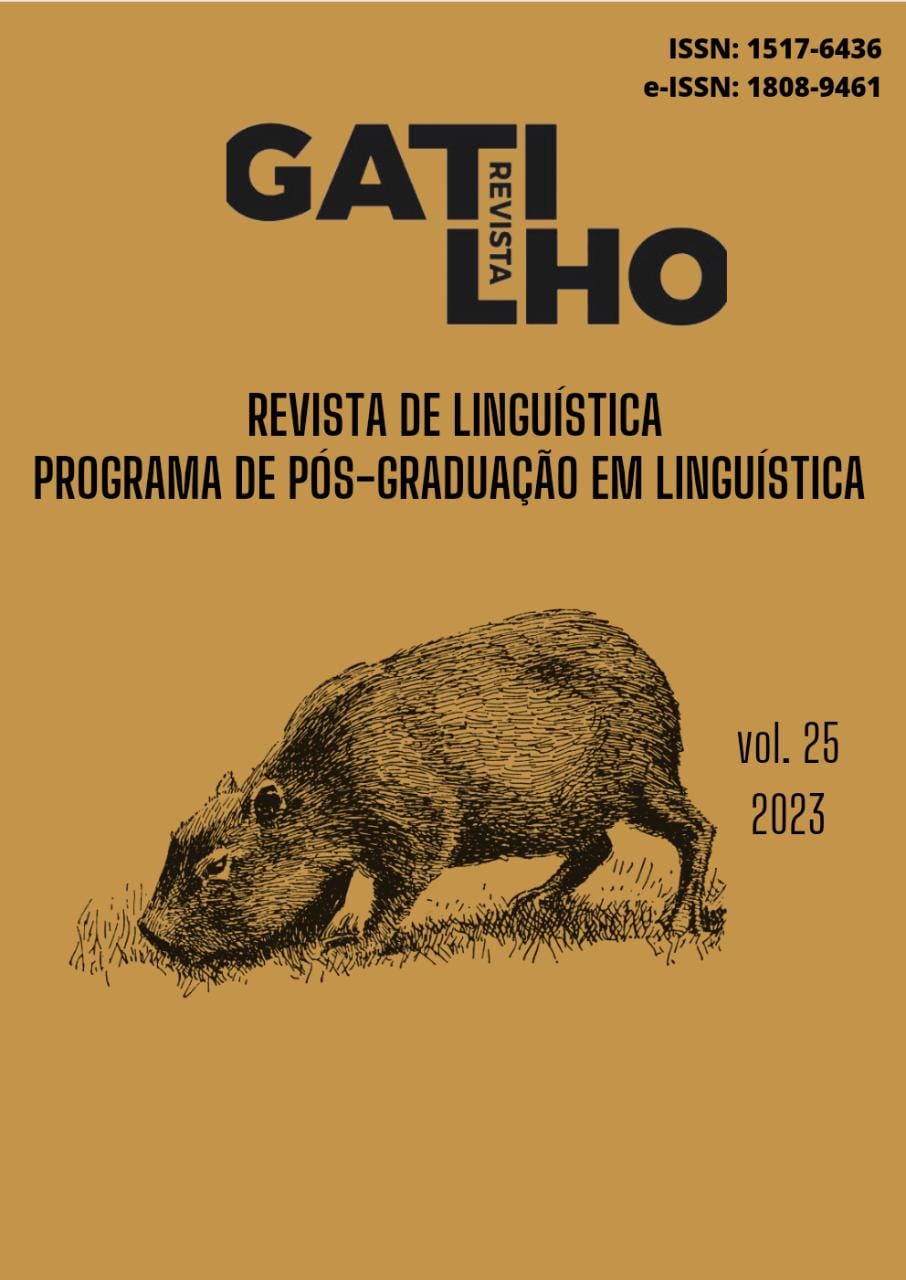Tá falando com quem?
Estudo longitudinal sobre a intenção comunicativa veiculada pelas interrogativas na Fala Dirigida à Criança.
DOI:
https://doi.org/10.34019/1808-9461.2023.v25.40017Palavras-chave:
Aquisição da linguagem, Fala Dirigida à Criança, Interrogativas, Português brasileiroResumo
RESUMO: Em muitas sociedades, adultos e crianças mais velhas modificam a fala quando se dirigem a bebês, ao conjunto de características semelhantes encontradas nesse tipo de fala dá-se o nome de Fala Dirigida à Criança (FDC). Entre os enunciados produzidos na FDC, as perguntas aparecem de forma relevante. Neste artigo, buscamos investigar, a partir de um estudo longitudinal, qual seria a intenção comunicativa veiculada através do alto índice de interrogativas direcionadas a crianças em fase inicial da aquisição do Português Brasileiro. Para isso, foram analisadas gravações de interações entre os pais e o bebê, Bibo, distribuídas entre seus 4 e 12 meses de vida. Dos 462 enunciados presentes nos 71 áudios analisados, foram encontradas 174 interrogativas, as quais foram classificadas de acordo com a intenção comunicativa: retóricas, semirretóricas e plenas. A análise dos dados revelou que as perguntas corresponderam a 37,6% dos enunciados. Quanto à incidência de cada tipo de pergunta ao longo do período, as retóricas predominaram entre os 4 e os 6 meses de vida do bebê (72%), dando lugar paulatinamente às semirretóricas, que corresponderam a 80% do total de perguntas aos 7-8 meses; nos meses finais do primeiro ano de vida, as perguntas plenas foram mais presentes e, junto com as semirretóricas, totalizaram 91% aos 12 meses. Os resultados apontam o uso das perguntas pelos adultos, inicialmente, para engajar o bebê na cena comunicativa, passando a ter função de verificar seu entendimento sobre situações cotidianas e de obter informações explícitas, conforme o bebê cresce.





